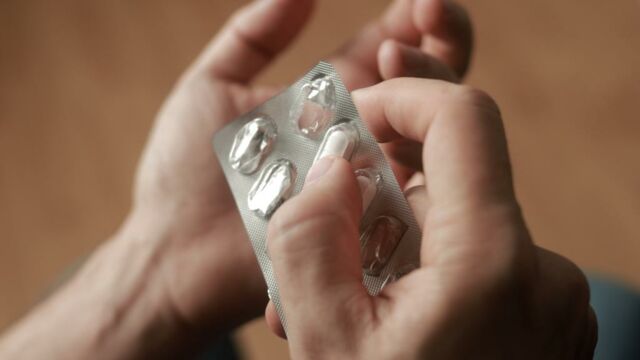Taking medication is supposed to provide a solution for your health, not cause another problem. We all know that there are certain medications you shouldn’t mix with alcohol but generally, when you are prescribed a drug by a doctor, you trust that it won’t cause any serious ill effects.
Discover our latest podcast
That’s what makes this new study so scary: scientists have discovered that carrying out a single course of antibiotics massively increases your risk of contracting a potentially life-threatening condition. The study, which tracked NHS patients, showed that this medication can raise your risk of developing sepsis by a terrifying 70%. Here’s a recap of what sepsis is, and what the study found.
What is sepsis?
Sepsis is, in a nutshell, your body’s reaction to an infection. According to the NHS:
It happens when your immune system overreacts to an infection and starts to damage your body's own tissues and organs.
It is sometimes called septicaemia or blood poisoning. Thankfully, you cannot catch sepsis from another person, but it can be hard to spot because symptoms are similar to those brought on by other infections, like the flu. This is very worrying, considering sepsis is fatal in around a fifth of cases.
The NHS advises you go to A&E or call 999 if an adult or older child has any of the following symptoms:
- 'acting confused, slurred speech or not making sense
- blue, grey, pale or blotchy skin, lips or tongue – on brown or black skin, this may be easier to see on the palms of the hands or soles of the feet
- a rash that does not fade when you roll a glass over it, the same as meningitis
- difficulty breathing, breathlessness or breathing very fast'
For more information, you can visit the NHS’ page on sepsis.
Study shows antibiotics increase your risk of sepsis
Scientists from the University of Manchester analysed 250,000 NHS patients who developed sepsis between January 2019 and June 2022. They compared them to a group of 1.3 million people who did not, and the findings showed that patients who had undergone a single one or two week course of antibiotics within the last year were 70% more likely to develop the deadly condition than those who had not.
This is concerning as antibiotics can be prescribed for simple infections, so people taking more than one course is not unlikely. Indeed, the scientists found that people who took two or three courses within the 12-month frame were at 130% greater risk.
This is because the antibiotics had ‘adverse effects on the beneficial bacteria in the gut could lead to increased susceptibility to infection’. According to The Telegraph:
There are around 250,000 cases of sepsis every year in Britain, with around 50,000 people dying from the infection - more than bowel, breast and prostate cancer combined.
The findings of this study are therefore pretty scary, but it is also important to remember that antibiotics remain a very useful way to cure a whole multitude of problems. You won’t automatically get sepsis if you use them!
Read more:
⋙ Sepsis: What to know about the 'preventable' disease killing young people
⋙ Drinking a beer a day is good for your health, surprising study reveals
⋙ Working out: This is the truth about whether energy drinks are really effective
Sources used:
NHS: Sepsis
The Telegraph: One dose of antibiotics a year ‘raises risk of sepsis by 70pc’















